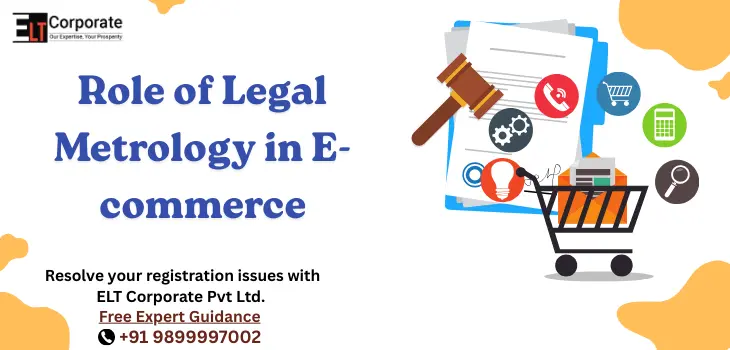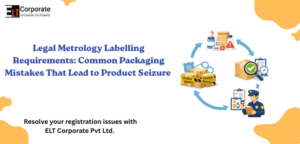In India, the role of legal metrology in e-commerce has become rapidly important as digital trade expands rapidly. Millions of products are sold online every day, it is the cornerstone of the consumer trust to ensure accuracy in weight, measures, labeling and fair trade practices. Legal Metrology Act, 2009 and Legal Metrology (Packaged Commodities) Rules, 2011 are equally applied to offline and online transactions, making compliance for e-commerce platforms, vendors and importers non-paralysis.
This guide explains why legal metrology matters in e-commerce, its compliance steps, punishment and business can combine with rules.
Why Legal Metrology Matters in E-commerce
For online sellers and platforms, compliance with Legal Metrology:
- Prevents misleading information and fraud.
- Ensures accurate declarations for consumer confidence.
- Avoids penalties and product seizures.
- Builds credibility in a highly competitive digital marketplace.
Scope of Legal Metrology in E-commerce
| Aspect | Requirement in E-commerce |
| Focus Area | Accuracy in product labeling, weights, MRP, and declarations |
| Governing Law | Legal Metrology Act, 2009 & LMPC Rules, 2011 |
| Authority | Controller of Legal Metrology (State & Central) |
| Applicable To | Online marketplaces, sellers, importers, manufacturers |
| Compliance Focus | Fair trade, transparency, consumer protection |
| Key Outcome | Trust, legal compliance, smooth business operations |
Step-by-Step: Legal Metrology Compliance for E-commerce
Step 1 – LMPC Registration
Importers and sellers must obtain LMPC Certificate for packaged goods.
Step 2 – Accurate Labeling
Each product listed online should be displayed MRP, pure volume, manufacturer/importer details and expiration date.
Step 3 – Verification of Weighing Instruments
If warehouses or sellers use weight machines, they should be verified and seal.
Step 4 – Marketplace Responsibility
E-commerce platforms (such as Amazon, Flipkart, etc.) should ensure compliance with legal metros standards.
Step 5 – Handling Grievances
Maintain consumer grievances and respond to disputes immediately.
Penalties for Non-Compliance
- Fines: Up to ₹1 lakh for first-time violations.
- Imprisonment: Possible for repeated or serious fraud.
- Seizure: Non-compliant goods may be seized or banned from online platforms.
Who Needs Legal Metrology Compliance in E-commerce?
- Online Marketplaces – Ensuring sellers follow LMPC rules.
- Importers/Traders – For packaged goods entering Indian markets.
- Sellers/Brands – Selling through websites, apps, or digital platforms.
- Logistics Providers – Using certified weighing machines for shipping.
How ELT Corporate Supports E-commerce Businesses
At ELT Corporate, we help online businesses and platforms remain compliant through:
- LMPC Certificate Registration – Fast, end-to-end support for importers and e-sellers.
- Label Verification Services – Ensuring all online listings meet Legal Metrology labeling norms.
- Audit & Inspection Readiness – Preparing sellers and warehouses for authority checks.
- Advisory & Legal Support – Handling notices, penalties, or disputes.
- Training – Educating staff on e-commerce compliance requirements.
FAQs
Q1. Is Legal Metrology mandatory for all online sellers?
Yes, every packaged product sold online must comply with LMPC rules.
Q2. Are marketplaces responsible for seller violations?
Yes, platforms share responsibility and must ensure only compliant products are listed.
Conclusion
How the rise of e-commerce has changed India’s shops, but has also increased the need for fair trade practices. Legal Metrology ensures accurate product information, transparency and consumer trust in the digital marketplace. For businesses, compliance is not only about avoiding punishment-it is about long-term reliability and development.
Need assistance with legal metrology for your e-commerce business? Contact ELT Corporate today to keep your brand safe and ensure trouble free compliance.








